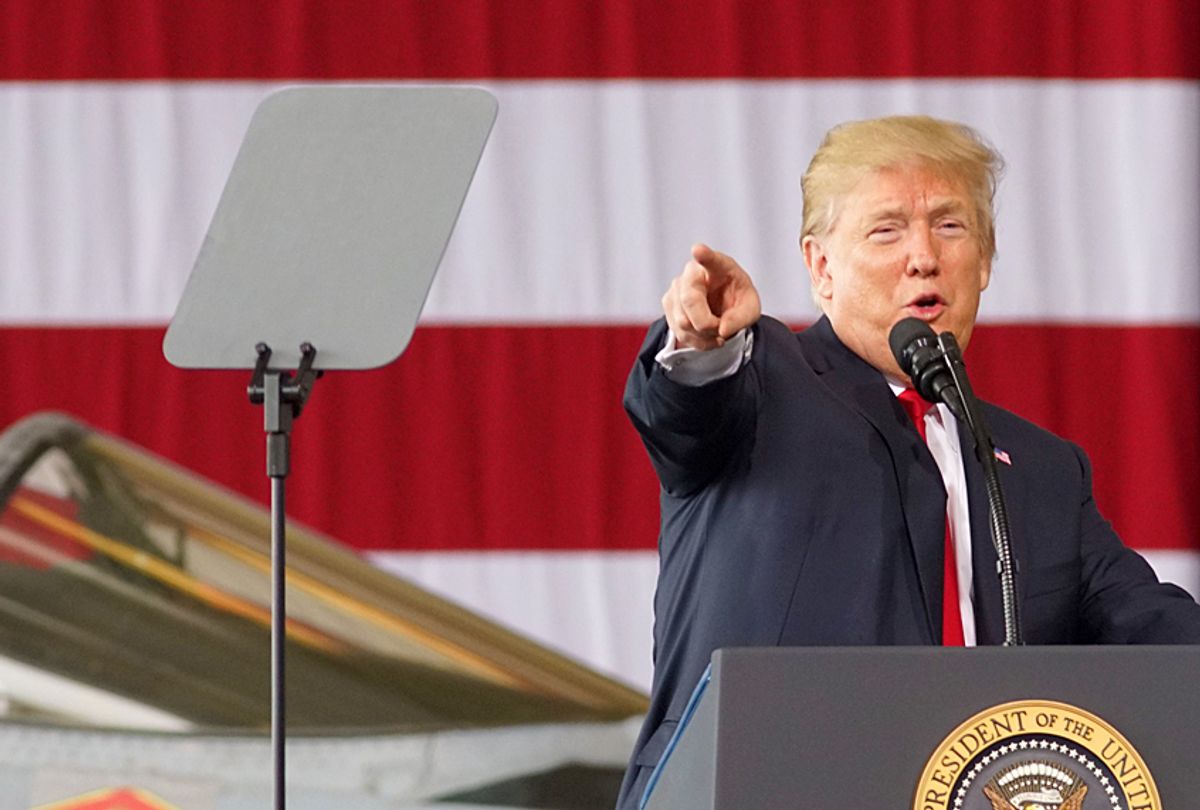 In the Trumpian world view, the United States is by definition superior to all other nations. In such a world, it is inconceivable that the U.S. economy would not run a trade surplus basically with all countries.
In the Trumpian world view, the United States is by definition superior to all other nations. In such a world, it is inconceivable that the U.S. economy would not run a trade surplus basically with all countries.
For that reason, it is only natural that Mr. Trump truly believes that any nation that has a trade surplus with the United States must simply be cheating.
One might be tempted to believe that Mr. Trump should know otherwise. After all, by profession Trump is a big-dealing real estate tycoon. As such, he ought to be very familiar with a world driven by market transactions. After all, most markets are driven by an endless series of individual buying and selling decisions.
However, with the benefit of hindsight, it is also apparent Trump never believed in the market system even in his own industry. He has been convinced all along that, whether owing to his beauty and intelligence, he could have his way with anything and everybody all along, at whatever price and conditions he was prepared to dictate.
To understand how out of character his performance is, imagine for a moment that Mr. Trump were back in his previous role as host of “The Apprentice” reality TV talk show host.
Hearing a contestant on the losing side of a deal complain about the lack of “fairness,” Trump would undoubtedly shout “Stop being such a whiner!,” adding: “You’re a loser, a real loser. I don’t want you on my team. You’re fired!”
And yet, Donald Trump has seized on “fairness” as the most serious issue of U.S. trade policy.
Binary men
To make the world fit their needs and predilections, Mr. Trump and his key trade advisor, Peter Navarro, see the world as an endless series of bilateral relationships. What shines unmistakably through the Trump/Navarro worldview is less of a refusal than an inability to think in more complex terms – such as engaging in multilateral dealings.
Both men share a deep conviction that, given the size and the weight of the United States, it is far more advantageous for the U.S. government to deal with all other nations in a one-to-one, effectively hand-to-hand combat fashion.
That way, Trump and Navarro believe they can prevent other nations, acting jointly, from sort of rolling up the table and either working up a deal against the United States or toward international agreements that have more teeth than “their” United States is willing to commit to.
Anti-internationalists
Trump and Navarro’s preferred negotiating strategy matches brilliantly with the instincts and emotional needs of the larger Republican camp. Having turned ever more radically conservative, it is deeply suspicious of any and all international agreements.
What do these core features of future U.S. trade policy mean for the rest of the world?
The United States under Trump has positioned itself as a kind of schoolyard bully. It is intent on breaking the previous web of multilateralism into many separate bilateralisms.
What is truly astounding about all of this is that there is a global precedent for Trump’s approach to trade. After WWII, when the United States led the world in establishing a multilateral trade system, called the GATT back then, the Soviet Union pursued a decidedly different design.
It established the COMECON, the so-called Council for Mutual Economic Assistance. That was a deliberate misnomer.
At the core of COMECON then, and of Trump’s trade policy now, is a very hierarchically structured international economic system where the economic assets of all the member nations are arranged in cascade style to serve one purpose — to strengthen the interests of the hegemon that sat at the top of the pyramid, the Soviet Union.
Mr. Trump’s and Mr. Navarro’s ultimate vision is to turn the entire world into a resurrected COMECON, this time under the firm leadership of the United States.
Only a short while ago, anybody in the United States arguing that way would have been described as spewing out an irreparably leftist, anti-capitalist claptrap.
And yet, here we are.
So much for “fairness.”



Shares